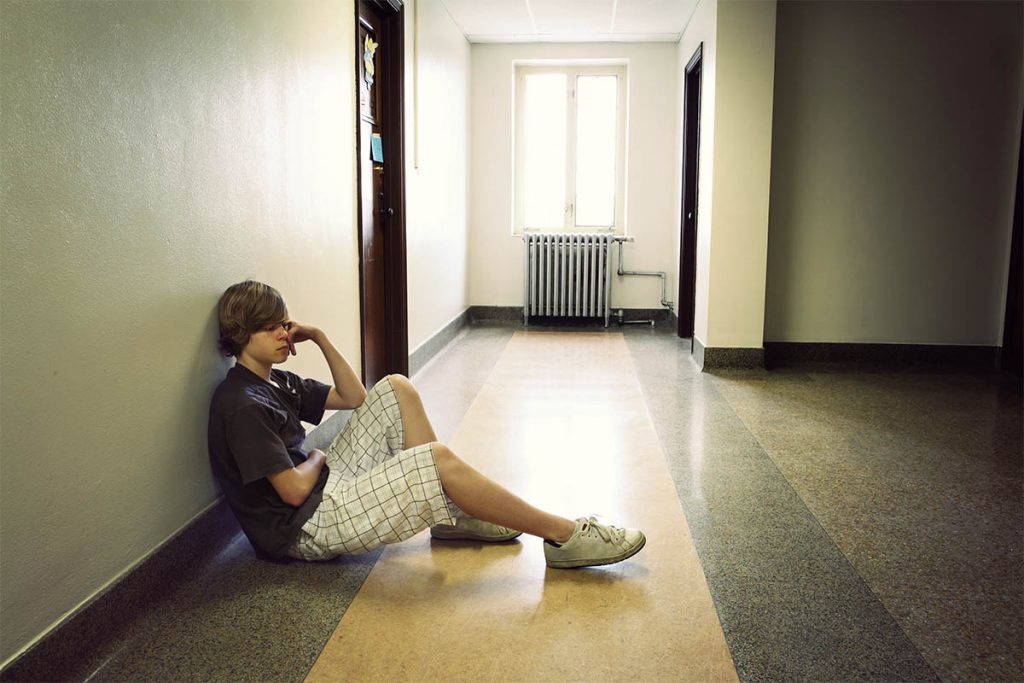Sometimes, mental health conditions in adolescents can mimic one another, making it challenging to determine what’s really going on. For example, disruptive mood dysregulation disorder (DMDD) and oppositional defiant disorder (ODD)—both have similar symptoms, but there are some key differences that will determine the most appropriate course of treatment.
If your child is struggling with mood swings and irritability, it is time to reach out for help. Family First Adolescent Services offers mental health treatment for children and adolescents to help young people learn how to manage their symptoms and achieve greater emotional balance. To find out more about how our adolescent DMDD treatment or ODD programming can help your child, Reach out at 888.904.5947 today.
Behavioral Issues Are Hard on Parents and Teens
Trying to parent a teen with behavioral, mood, and impulse control issues is challenging. You might feel like you’re at the end of your rope nearly every day. But remember, your child is not just acting out for the sake of it or to get attention. There is something deep down that they’re struggling with, and they don’t have the words to communicate it effectively.
Behavioral conditions like DMDD and ODD are broad descriptions that help mental health providers treat adolescents more effectively. Reaching out for an assessment from a professional can help give a better idea of what’s going on at the root of your teen’s mental health, which can help them get the support they need to find balance.
Signs of DMDD and ODD
DMDD and ODD are extremely similar. Both involve irritability and challenges with authority. DMDD is considered to be more severe since tantrums and outbursts escalate quickly and are often explosive.
Symptoms of DMDD
Children with disruptive mood dysregulation disorder may exhibit the following:
- Chronic bad mood
- Challenges functioning in their home or school environment
- Difficulty interacting with peers in a healthy manner
- Frequent tantrums and outbursts that occur at least three times per week
To be diagnosed with DMDD, your child must experience the above symptoms regularly for at least one year.
Symptoms of ODD
Children with oppositional defiant disorder may present the following symptoms:
- Chronic negative attitude
- Easily irritated
- Difficulty following rules or requests from others
- Frequently questioning or arguing with authority figures like parents or teachers
- Purposely trying to upset or disturb others
- Vengefulness
- Refusing to take responsibility for their actions
If your child shows these symptoms for six months or more, they may be diagnosed with oppositional defiant disorder.
Is It DMDD or ODD?
It can be a bit challenging to distinguish between DMDD and ODD since they both involve negative and disruptive behaviors. However, there are two key differences to look for:
- The primary characteristic of DMDD is frequent and severe mood swings.
- ODD is most notable through vengeful, defiant, and hostile behavior toward authority figures.
An assessment from a mental health professional can provide insight into what your teen is dealing with. Anger and irritability or problems with authority figures aren’t just related to DMDD or ODD. Getting the full picture of why your teen is acting out will allow you to help them find the right support.
Adolescent DMDD Treatment
If your provider determines that your child has a behavioral disorder, they may recommend the following treatment options:
- Cognitive-behavioral therapy or CBT to teach your child healthy coping skills to better manage their emotions
- Family therapy to improve communication and reduce conflicts among family members
- Medication to help manage symptoms of mood dysregulation, anxiety, and depression
The best treatment for your child will depend on their individual situation. You can work together with their mental health professional to customize their treatment program.
Call Family First Adolescent Services Today for Support
Emotional outbursts and defiance can be stressful for any parent, but you do not have to try and manage it on your own. With more than 120 years of combined clinical experience, the Family First team offers high-quality treatment for teens and simultaneous support for parents. Reach out to us online or at 888.904.5947 to learn more about our treatment options.

